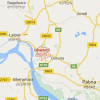BNP follows the old pattern
The BNP was supposed to hold its national council more than three years ago to elect the party chief and other office bearers according to its charter. But it did not do so. Its failure allowed those who were either elected or picked by the chairperson in 2009 to continue holding their posts for three more years, which is equivalent to a fresh term.
While the party is going to hold the council this month, it seems its charter is set to be ignored again. On February 29, the party Election Commission announced the schedule for holding elections only to the chairperson and the senior vice-chairman posts.
As predicted, Khaleda Zia and her son Tarique Rahman were re-elected uncontested on Sunday as BNP's chairperson and senior vice-chairman respectively as no one dared to challenge them in the race.
Tarique is a lucky man. He has been staying in London since mid-2008 along with his wife and daughter. He got political asylum in the UK in 2014, BNP and diplomatic sources in Dhaka and London have confirmed earlier.
Tarique was detained by the joint forces during the caretaker government in early 2007. He has been indicted at home in a number of cases including the one over the August 21 grenade attack on an Awami League rally.
The senior vice-chairman post in the BNP was created just for him in 2009 amending the constitution. He was then elected to the post by the party council even though he was sitting in London.
This time too, he was "re-elected" unopposed in his absence.
On the day of the election schedule announcement, BNP vice-chairman Major (retd) Hafizuddin Ahmed, in advance, justified the unopposed elections of Khaleda and Tarique. Their popularity, as Hafizuddin claimed, was skyrocketing and therefore nobody would challenge them in the race for the two top posts.
How would the leaders for the other posts in the standing and national executive committees be elected now?
The party EC--led by Jamiruddin Sircar—has held back from announcing the schedule for elections to these other posts. The councilors cannot exercise their voting rights to elect the other leaders without the schedule. The ensuing council rather will be used to empower Khaleda Zia again to pick other office bearers to form the party's standing and national executive committees.
If the plan is successful, it will be a clear breach of the BNP's charter—the charter the party had adopted in 2008 to register as a parliamentary party with the Election Commission to be eligible to contest the general election.
The Representation of the People Order (RPO) says a political party is to have a specific provision in the charter for the election of the members of the committees at all levels including members of the central committee.
The EC had introduced the political party registration system with specific terms and conditions to encourage the practice of democracy in the parties.
The charter empowers the BNP national council consisting of central and grassroots levels leaders to elect the chairperson and members of the standing and national executive committees.
But the BNP, in its first council held in December 2009 after introduction of the registration system, ignored its own charter of electing all office bearers in the council.
Instead, the party copied the then ruling Awami League's strategy earlier that year to form the standing and national executive committees.
The AL, in its council held in July 2009, elected Sheikh Hasina and Syed Ashraful Islam as the party chief and general secretary and gave Hasina the authority to pick other office bearers. With this power, Hasina later handpicked the party's presidium and central working committee leaders.
The AL repeated the formula in December 2012 in its national council. The party is preparing for holding the next council and this formula may be applied again.
Now, it is time for the BNP to apply the strategy in its March 19 council.
Is there anybody to monitor if the registered political parties are following their own charters? Apparently not.
The government is in no position to say anything as the party in power has already applied this formula twice.
The EC has always maintained they lack the authority to do so.
Thus, the major political parties that have been governing the country in turns since 1991 are practicing their own brands of democracy in the party.
They keep proselytising for democracy though there is little scope for practicing democracy in their own homes.

 For all latest news, follow The Daily Star's Google News channel.
For all latest news, follow The Daily Star's Google News channel. 








Comments